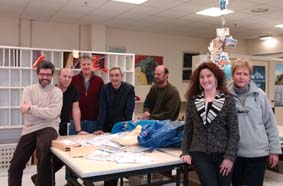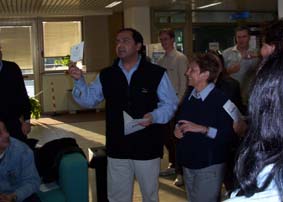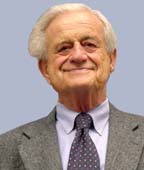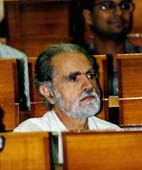Personal tools
News from ICTP 107 - Monitor

We've Got Mail
When people think of the ICTP Mail Office, not surprisingly, they
usually think of the daily distributions of letters, journals
and packages.
Well, mail is the Mail Office's core responsibility. In
fact, the Office handles more than 100,000 pieces of mail each
year, including 84,000 science-activity posters and bulletins,
10,000 letters sent by scientists and staff, and 3000 express
mail packages. In addition, the office annually distributes about
25,000 pieces of internal mail via its twice-daily rounds on the
ICTP campus.
But the fact is that there is much more to the Mail Office than
the mail counters found in the Main and Fermi buildings.

From left: Edoardo Nattelli, Marco Sineri, Roberto Cappella, Sandro Pastore, Alessandro Bulzani, Tiziana Derni and Marina Generutti
As Alessandro Bulzani, head of the office, explains: "Our
staff also oversees the Centre's archives, takes the photos for
ICTP badges, purchases and distributes the Centre's stationery,
helps prepare the folders and placards for the seminars, records
the arrival of all incoming packages, and sells CD ROMs, pens,
pencils and stamps."
When Bulzani first arrived at the mail office in the early 1980s,
it was a two-person operation. Today, the office's broad-ranging
responsibilities require a full-time staff of seven and its facilities
take up a large portion of the lower level of the Fermi Building.
"Just as our responsibilities have evolved and expanded over
time," Bulzani notes, "so too have the options for mail
service. Twenty years ago, we worked with just one company--Poste
Italiane. Our customers could use only surface or air mail."
"Today," Bulzani says, "we have a variety of options.
There is conventional mail delivery with Poste Italiane, which
has improved a great deal over the past few years. The Italian
postal service, for instance, now offers express mail that ensures
delivery in two or three days in Europe and a week or so throughout
the rest of the world." Then there are private couriers like
DHL and TNT that deliver letters and packages virtually anywhere
in the world in two to three days.
Bulzani also observes that the widespread use of email and internet
creates additional competition for traditional mail-delivery services.
"It has certainly had an impact," he says, "but
there will always be a place both for surface and air mail. Email
and the internet will not eliminate conventional and courier mail
services in the same way that television has not eliminated movie
theatres. There will be room for both."
For ICTP scientists and staff that just means more options for
exchanging information and news to their colleagues, family and
friends. For the mail office, that means keeping abreast of rapid
changes in mail delivery services that have come a long way from
the 'stamp, slot and send' days of the recent past.
Science Matters
On 21 November, Sincrotrone Trieste, in co-operation with the European Strategy Forum on Research Infrastructures (ESFRI) and AREA Science Park, hosted the International Conference on Research Infrastructures in Europe (INFRA/ERA 2003), which was held at Stazione Marittima congress centre in downtown Trieste. Philippe Busquin, European science commissioner and Letizia Moratti, Italian minister of education, university and research, spoke at the event.
ERA
The 2003 edition of ERA--Esposizione di ricerca avanzata--was held from 22 November through 5 December at Stazione Marittima congress centre in downtown Trieste. This year's theme focussed on 'fire.' ICTP shared a stand with Laboratorio dell'Immaginario Scientifico (IS) that included several exhibits examining the 'physics of fire.' Launched in 1991, ERA is a biennial exhibition designed to showcase the work of scientific institutions in Trieste and the surrounding area.
| |
|
| |
|
ICTP/IS interactive exhibits at ERA 2003
Genoa Science Festival
A number of scientists associated with ICTP participated in the first edition of Festival della Scienza. The event, which took place in Genoa (Italy) from 23 October to 3 November, attracted several thousand visitors. Riccardo Zecchina, a scientist with ICTP's Condensed Matter Physics group, participated in a roundtable discussion examining the philosophical and psychological forces that often drive scientific investigations. Tullio Regge, winner of the ICTP Dirac Medal in 1996, presented a lecture, "Beyond Physics: Conquests and Questions of Contemporary Physics." Stefano Fantoni, a consultant with ICTP's Condensed Matter Physics group and director of the Master in Science Communication at the International School for Advanced Studies (SISSA), explored recent communications strategies in science.
Nasir Iqbal Returns Home

Nasir Iqbal, employed by the ICTP/TWAS Donation Programme since
1990, has left the Centre to return to his home country of Pakistan.
ICTP and TWAS staff members will miss his warm and kindly presence,
and wish him and his family well in their future endeavours.
IN MEMORIAM

Marshall N. Rosenbluth, a pioneer in the studies on nuclear fusion who played a central role in the development of ICTP, died on 28 September in San Diego, California, USA. He was 76. Born in Albany, New York, USA, he attended Harvard University and received his doctorate from the University of Chicago in 1949. The following year, Edward Teller (his thesis adviser) recruited him to work on the top secret hydrogen bomb project in Los Alamos, New Mexico. Rosenbluth witnessed the first tests for the hydrogen bomb in the South Pacific. He taught physics at the University of California at San Diego, the University of Texas at Austin, and the Institute for Advanced Study in Princeton, New Jersey. As The New York Times wrote on 30 September 2003, Rosenbluth "was a central figure in the ICTP in Trieste," where he served as one of the directors of ICTP's inaugural activity in October 1964 devoted to plasma physics; headed the research group in plasma physics in 1965-1966; and was a member of the Scientific Council from 1975 to 1982. Rosenbluth was the recipient of numerous honours, including the Albert Einstein Award, the Enrico Fermi Award, and the 1997 National Medal of Science, the highest scientific honour in the United States.

Luis Masperi, a long-time
associate of ICTP and director of the Centro Latinoamericano de
Física (CLAF), died on 2 December in Bariloche, Argentina,
after a brief illness. He was 63. Masperi, who was born in Spoleto,
Italy, and raised in Argentina, was an internationally renowned
theoretical physicist with broad-ranging research interests in
particle physics, astrophysics and topology. He was also widely
recognised for his dedication to world peace, having served as
a member of the Pugwash council from 1999 to 2002. In addition,
he shared the 1992 American Physical Society Forum Award with
four other Argentinean and Brazilian physicists for their efforts
in persuading Argentina and Brazil to abandon their nuclear weapons
programmes. Masperi first visited ICTP in 1966 as a young student
and retained close ties with the Centre for nearly 40 years. Since
1999, Masperi had served as director of CLAF where, working in
concert with the ICTP Office of External Activities (OEA), he
helped to strengthen physics research and training throughout
Central and South America.